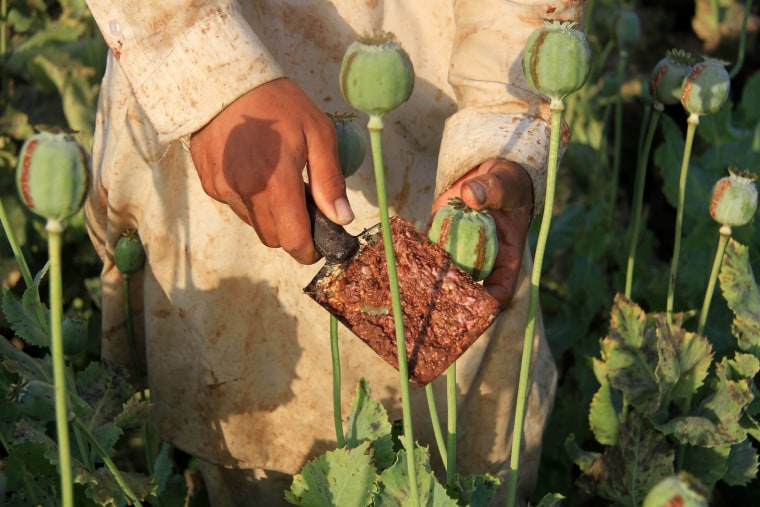KABUL, Afghanistan — A senior Afghan general has been arrested after being caught transporting a large amount of heroin in his military truck, police said.
Brig. Gen. Abdul Samad Habibi was driving on the main highway in the country's north when he was stopped on Tuesday, Baghlan provincial police chief Gen. Abdul Jabar Purduli told NBC News.
"An Afghan Army Ranger truck was stopped at a checkpoint in in Puli-Khumri and our counter-narcotic police found [41 lbs] of heroin inside,” he said.
Two other people were detained with Habibi, who is in charge of recruitment for the army in the city of Mazar-i-Sharif, according to Purduli. Habibi is expected to be charged in the next few days, he added.

Habibi is the highest-ranking Afghan military or police officer to be arrested in a case involving drugs. The police chief of Nimruz province, Gen. Mohammad Kabir Andarabi, was arrested at Kabul International Airport and charged with being involved in the illicit business in 2013. He was later sentenced to 10 years in prison.
The Afghan military was not immediately available for comment on Habibi's arrest.
Afghanistan produces around 90 percent of the world's opium — from which heroin is made — despite the more than $7 billion in U.S. aid spent on stamping out poppy cultivation and fighting drug smuggling. The country's poppy crop hit a record high in 2014, according to the U.N. Office on Drugs and Crime (UNODC), with a total area of 224,000 hectares under cultivation, 7 percent higher than previous year.
